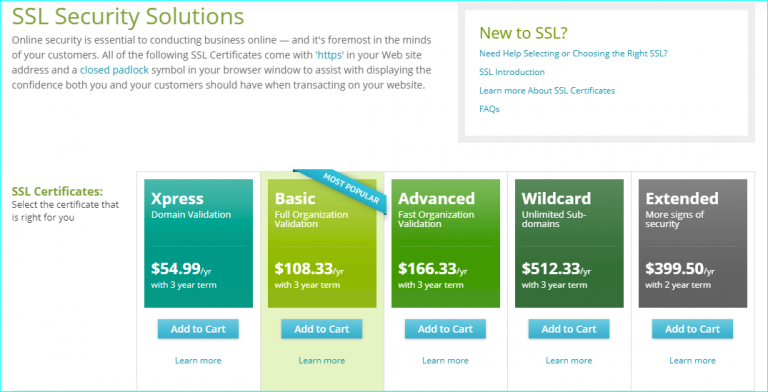SSL Site Security Facts
SSL can be confusing to most people, especially with all the certificates and intricate details that come with it.
Here are some facts and details about SSL.
- If you’re not always on the SSL site, you are vulnerable to threats such as side-jacking, compromise of sensitive data, and malware attacks. This url will look like HTTPS://, and might possibly have a lock symbol in the url as well. This is the secured version of HTTP://
- The cost of losing sensitive data is pricier than purchasing the SSL certificate. Which for a basic one will run you between $50-$100 a year
3. Secure sites (HTTPS) will help ranking on Google, because Google loves security, because it ensures the browsers security and less changes for hacks.
4. There are different types of SSL certificates available. You can view some options for SSL certificates here.
High Assurance Certificate– Two things must be verified before you can have a high assurance certificate: ownership of the domain name and valid business registration. Both must be verified so visitors can be sure that you are who you say you are. This certificate can take a couple hours to a few days to be issued.
Low Assurance/Domain– Validated Certificate- This is a certificate that only includes your domain name, not your business or organization name. Authorities can automatically verify that you own the domain name by sending an email to the email address on the domain’s WHOIS record. They are instant and cheaper, but they provide less security and assurance to your customers.
EV (Extended Validation) Certificate– This is a new type of certificate that is designed to prevent phishing attacks. Phishing attacks are attacks that specifically target credit card information, usernames, and passwords. This certificate can take a few days to a few weeks to receive but it gives an even greater assurance to customers than the high assurance certificate by making the address bar green.
Wildcard Certificate– This certificate can secure an unlimited number of first level sub domains on a signal domain name.
Chain Certificate, Intermediate Certificate, Root Certificate– Certificate authorities issue certificates in the form of a tree structure. The root certificate is the top-most certificate in the tree. All certificates after the root certificate gain the trustworthiness of the root certificate. Any certificate in between your certificate and the root certificate is the chain or intermediate certificate. These must be installed to the web server along with the primary certificate for you web site so the browsers can link the certificate to a trusted authority.
Warranty– A warranty is what you get when you purchase a SSL Certificate. But beware, it can be misleading. It is not a warranty to the purchaser but rather to the end users who use the site. If the purchaser turned out to be a fraud and a customer loses money because the certificate authority didn’t properly validate you, the certificate authority would compensate the customer. This almost never happens, though. Therefore, it is not very important how big the warranty is when you buy the certificate.
Scalable SSL Certificate– Every certificate authority now issues a scalable certificate. These can be used at low, normal, or high encryption rates.
Understanding SSL can be a huge help to you business’s website. Being secure is a golden ticket in today’s age for traffic to come to your website, and therefore bring more customers and clients to you. Paying for a secure website (SSL Certificate) is cheaper than if you were hacked and sensitive information had been stolen, etc. Knowledge of these certificates and the basics of SSL can help your website grow and prosper.

